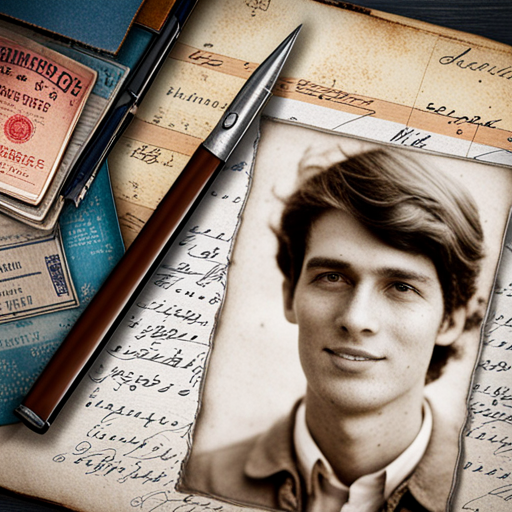Yearbooks have been a cherished tradition for capturing memories of youth for centuries. Initially starting as scrapbook-style books in the 17th century, they evolved into formal yearbooks with photographs and information in the 19th century.
As the end of the school year approaches, teachers play a significant role in creating lasting memories for their students by writing messages in their yearbooks. These messages serve as a source of encouragement, inspiration, and gratitude, often incorporating quotes from famous figures to convey messages about possibilities, perseverance, and embarking on a new journey.
Teachers express pride in their students’ dedication and hard work, recognize their talent and potential, and wish them a bright future. Moreover, they encourage students to continue their success, challenge themselves, and seize new opportunities.
Gratitude is also expressed for the students’ presence in the class and the lessons learned from them.
This article will explore various ideas for crafting memorable and inspiring messages to leave a lasting impact on students as they embark on their future endeavors.
Just The Essential Highlights
- Yearbooks have a long-standing tradition and provide memories of youth.
- Teachers can write inspiring and encouraging messages in students’ yearbooks.
- Quotes and sayings from famous figures can be used to inspire students.
– Personalizing the message and keeping it short and simple are important tips for writing in a student’s yearbook.
What is a Yearbook?

Yearbooks are historical books that have evolved over time, starting as scrapbook-style books in the 17th century and later transitioning into formal printed books with student and faculty information in the 19th century. They began including class and individual photos in the late 19th century, and serve as a tradition for signing and exchanging messages at the end of the year.
These books provide a tangible way for students to capture and preserve memories from their youth. They serve as a record of the school year, showcasing achievements, events, and the individuals who were part of the educational community.
Yearbooks not only capture visual snapshots of the past but also allow for personal messages and reflections, creating a lasting memento for students to look back on years later.
History of Yearbooks

The historical development of these printed volumes documenting the academic year can be traced back to the 17th century when they first emerged as scrapbook-style books. As the years passed, yearbooks evolved into formal publications that included student and faculty information. The late 19th century saw the introduction of class and individual photos, adding a visual element to the yearbook. Today, yearbooks are a cherished tradition that captures memories of youth and serves as a keepsake for students. To provide a visual representation of the history of yearbooks, here is a 3-column, 5-row table showcasing key milestones:
| 17th Century | 19th Century | Late 19th Century |
|---|---|---|
| Scrapbook-style books | Formal publications with student and faculty information | Introduction of class and individual photos |
Yearbooks have come a long way since their humble beginnings, becoming an integral part of the school experience and preserving memories for generations to come.
Ideas for Yearbook Messages

A variety of creative and uplifting sentiments can be shared in student yearbooks to commemorate their academic journey. Yearbook messages provide an opportunity for teachers to inspire and encourage students as they embark on their next chapter. Here are four ideas for yearbook messages that can leave a lasting impact:
- Celebrate Achievements: Acknowledge the student’s accomplishments and commend their hard work and dedication throughout their academic journey.
- Encourage Growth: Inspire students to continue learning and growing by reminding them of their potential and the infinite possibilities that lie ahead.
- Foster Resilience: Empower students to overcome challenges and persevere by highlighting the importance of resilience and determination in achieving success.
- Express Gratitude: Show appreciation for the student’s unique contributions to the class and express gratitude for the opportunity to be a part of their educational journey.
These messages aim to uplift and motivate students as they reflect on their years in school and embark on their future endeavors.
Frequently Asked Questions
How can teachers personalize their yearbook messages for students?
Teachers can personalize their yearbook messages for students by acknowledging their unique qualities, achievements, and contributions. They can also offer personalized advice, encouragement, and wishes for their future endeavors, demonstrating a genuine connection and appreciation for each student.
What are some tips for using humor in yearbook messages?
When incorporating humor into yearbook messages, it is important to be cautious and considerate. Use light-hearted jokes and puns, but avoid anything that may be offensive or hurtful. Humor should enhance the message and create a positive and enjoyable experience for the student.
Are there any specific quotes that are commonly used in yearbook messages?
Commonly used quotes in yearbook messages include those from U2 and Mary Poppins about possibilities, Dr. Seuss about going places, Confucius about starting a journey, and a quote about the difference between who they are and who they want to be.
What are some creative ways to wish students luck in their future endeavors?
Creative ways to wish students luck in their future endeavors include: encouraging them to embrace new opportunities, reminding them to follow their passions and dreams, and expressing confidence in their ability to achieve greatness.
Can you provide some examples of short and simple yearbook messages that still convey a meaningful message?
Short and simple yearbook messages can still convey a meaningful message. Examples include encouraging students to dream big, acknowledging their talent and potential, and expressing gratitude for their contributions. These messages inspire and motivate students without being overly lengthy or complex.
